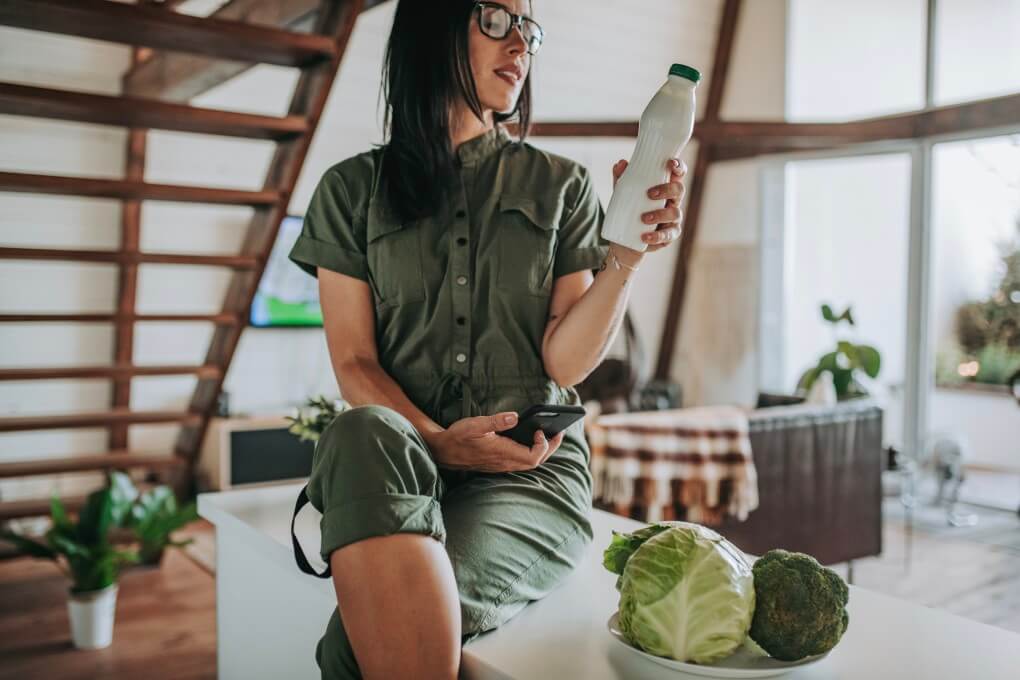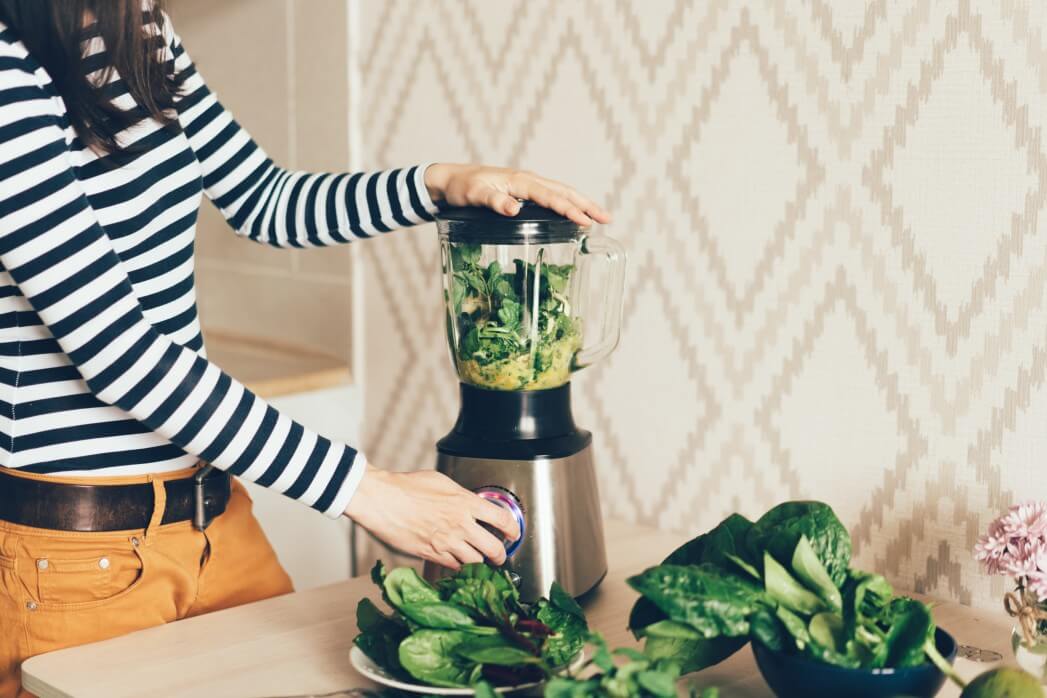For decades, women have been looking for natural ways to increase their bust line, from exercises to supplements to increasing certain foods. But, can almond milk make my breasts bigger?
For the last decade, there has been information circling the internet claiming that almond milk can be credited with breast enlargement. Based on recent studies and the evidence presented, you can conclude that almond milk does not make your breasts bigger.
Keep reading for a further answer to the question, “can almond milk make my breasts bigger?”.
Can Almond Milk Make My Breasts Bigger?
The short answer is no. There is not enough evidence to support this claim.
But, where did that theory come from?
Almond milk production in the United States has exploded in recent years, due to claims that its health benefits outweigh those of cow's milk.
According to market research firm Mintel, non-dairy milk sales increased by 61% from 2012 to 2017, with almond milk accounting for two-thirds of the market.
At the same time, cow's milk consumption has been continuously declining for decades.
However, the latest assertion may tilt the scales in favor of almond milk for ladies seeking a curvier physique.
A poster called Laynee Tiu uploaded a screenshot of a Google search that indicated drinking almond milk will boost the size of women's breasts in a Nov. 26, 2020 Facebook post that was shared 121 times in four days. And thus the madness began.

Why Do People Think Almond Milk Makes Breasts Bigger?
Creator of the website biggerbreastformula.com, Sahar Perske, has been at the forefront of the almond milk craze.
She asserts that drinking two large cups of almond milk per day will result in increased breast size.
The presence of phytoestrogens in almond milk supports this notion. Phytoestrogens are plant-based chemicals that, to some extent, imitate estrogen's effects in the female body.
Breast growth is triggered by the hormone estrogen, which is released throughout puberty.
Realistically, 75% of the phytoestrogens in almonds are lignans, which have a far less estrogenic impact than what occurs naturally in the human body.
It's quite improbable that the phytoestrogens in your glass of almond milk will affect your breast development.

Phytoestrogen Makes Your Breasts Bigger
Plants and plant-based diets contain phytoestrogen, which are naturally occurring compounds.
Almonds also have a high phytoestrogen content. When consumed, they may have the same effect as estrogen produced by the body.
Phytoestrogens, on the other hand, may not bind to estrogen receptors as tightly as estrogen produced by the body, therefore their effects may be diminished.
Cow's milk also contains hormones that drive breast growth, including estrogen, progesterone, and prolactin, which are identical to those found in the human body.
Pop science and internet culture combined these morsels of knowledge to suggest that almond milk can increase the size of your breasts.
Related: Almond Milk vs. Cow Milk
What’s In My Almond Milk?
The inherent problem with the conclusion that almond milk can make your breasts bigger is the actual composition of almond milk.
Assuming that almond milk has the nutrient profile of both almonds and cow’s milk is a grave mistake.
In truth, most commercial almond milk only contains about 2% almonds, with the rest being mostly water, sugar (for sweetened almond milk), and some form of oil to give it that creamy texture.
A calcium supplement, potassium citrate, gellan gum, and fortified vitamins are frequently included as well.
Bottom line, there is absolutely no evidence to suggest that almond milk can make your breasts bigger.
What Can I Eat or Drink To Make My Breasts Bigger?
Increase Your Phytoestrogens
Exercise, diet, lotions, and even specialized equipment are all natural ways to improve breast size.
Certain hormones in a woman's body must increase in order for her breasts to grow: estrogen, prolactin, and progesterone. Phytoestrogen, on the other hand, is the star of the show.
Because their chemical structure is remarkably similar to that of estrogen produced by the body, phytoestrogens resemble estrogen. Your estrogen receptors treat phytoestrogens as though they were estrogen when they enter your body.
There are many foods that contain phytoestrogens that could promote breast growth if eaten regularly along with a balanced diet. These include:
- Nuts and seeds (flax seeds, walnuts, almonds, sunflower seeds)
- Soy products (tofu, miso, soybeans, tempeh, soy milk)
- Herbs (hops, red clover, licorice root)
- Some grains (wheat germ, oats, barley)
- Certain fruits (strawberries, apples, grapes, cranberries, carrots, pomegranates)
- Certain vegetables (mung beans, yams, sprouts, lentils)
- Certain beverages (bourbon, beer, red wine, coffee, olive oil)
Related: 10 Popular Almond Milk Alternatives
Drink Milk and Eat More Vegetables
Natural breast augmentation has been linked to a woman's increased intake of milk, green leafy vegetables, soy, and almonds, according to medical experts.
Cow's milk is high in estrogen, progesterone, and prolactin, all of which are necessary for women to make milk, resulting in larger breasts.
Leafy green vegetables lack phytoestrogens, which are needed to build breast tissue, although they do assist tone existing breasts.
Phytoestrogens, the hormone that causes breast growth, are found in soy. Soy also contains isoflavones, which protect the breast tissues from free radicals and cancer cells.
Furthermore, increasing the amount of nuts you eat on a regular basis can help you produce breast tissue and enlarge your breasts.

Benefits of Drinking Almond Milk
While almond milk will, more than likely, not make your breasts bigger, there are many benefits to drinking it.
Almond Milk Can Strengthen Your Bones
Dairy products have the highest concentration of calcium. On the other hand, almonds are a poor source of this vitamin. However, calcium is routinely added to almond milk (enriched) to make it more like real milk.
Almond milk provides 30% of the daily necessary amount of calcium and 25% of the daily recommended amount of vitamin D, reducing your chances of arthritis and osteoporosis while also boosting your immune system.
Furthermore, these two nutrients work together to support bone and tooth development.
Almond Milk Can Help You Maintain A Healthy Weight
A cup of almond milk contains only 30-40calories, as opposed to 146 calories in whole milk, 122 calories in 2 percent milk, 102 calories in 1 percent milk, and 86 calories in skim milk.
Almond milk has a high nutritious value in comparison to its caloric value, despite being low in calories. It's a fantastic substitute that will help you lose or maintain your current weight.
Related: Does Almond Milk Help You Grow?
Almond Milk Can Help Keep Your Heart Healthy
Almond milk is cholesterol-free and low in saturated fat. It also has a low salt content and is high in Omega fatty acids (healthy fats).
As a result, almond milk can aid in the prevention of high blood pressure and heart disease.
Almond Milk Is High In Vitamin E
Almonds are high in vitamin E, a fat-soluble antioxidant that protects your cells from free radical damage.
Vitamin E is beneficial to your eyes and skin, and it may also aid in the prevention of ailments such as heart disease.
As a bonus, almond milk is also great for breastfeeding due to all the benefits above!
Does Almond Milk Make My Breasts Bigger?
There is absolutely no evidence to support breast growth from drinking almond milk. While there are several health benefits to drinking almond milk, it will likely not make your breasts bigger.
